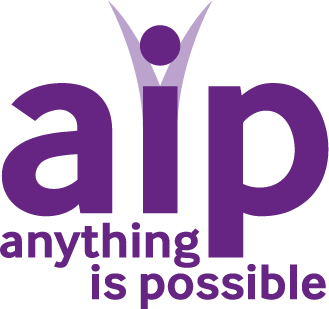I get many questions about how it’s best to “turn up” at work – how should you be with peers, leaders or people that report to you. I also get asked a lot about leadership presence – people worried about giving the right impression as a leader or commenting that they don’t think they work for a “strong” leader.
Over the years I’ve also watched a little bemused when someone I think I know really well suddenly appears tongue tied or uncomfortable when faced with different people and different situations. Once during a senior leadership team meeting I listened to someone presenting to our boss and they were using complex vocabulary, repeating themselves and then when questioned became somewhat defensive. Later that day when we were on our own I asked them to talk to me about their subject and we had a great conversation which came across completely differently than it had earlier in the day. They actually seemed to enjoy talking about the topic, were much more relaxed and when I asked a searching question they admitted they hadn’t thought of what I was asking and there were unsure – not an inkling of defensiveness. I then gave them my impression of the two conversations and asked them if they too recognised the significant differences between the two situations. With honesty they said that they felt they needed to impress during the first conversation and almost “validate” their position around the table. Clearly during the 121 exchange with just me it was different and they said they didn’t feel as if they were being judged so it was much easier. My response was just be yourself because it came across really clearly and much more authentically when you weren’t trying so hard.
I wanted to write about this to see if you too have either experienced others around you “performing” in different ways or if indeed you yourself feel different in different situations. Of course I know myself that as I communicated or interacted with different people at work I too considered my audiences and adjusted my style but I don’t believe I ever tried to act in a way that wasn’t based on who I am . I know that when I am stressed or nervous my memory is poor, I also don’t like silence and tend to fill space with more words so as I became more experienced I had to prepare more and compensate for the nerves I knew would be there. I certainly had to on many occasions hide my internal emotions and almost fake self-confidence but the use of that mask was at least something I became conscious of over the years and it became part of me rather than something I tried to change.
Over the years I have also spent many meetings in awe of some of my peers – they seemed to have a greater knowledge than me, lots of experience, were much more motivated and were able to easily communicate their story. In my most recent leadership team I wanted to find “my place” – not to try and compete but to figure out what it was that I could do naturally, more easily and perhaps differently to my peers so that I didn’t fall into the trap of trying to copy or be like them.
I started by asking a small group what they thought I was good at, what was different about me or what stood out to them when I was talking, presenting, contributing. I didn’t want it to be a formal feedback loop – I was honest and said I was trying to figure out my value to the team so I could build on that and leave others to do what I wasn’t so good at. The feedback was interesting:
- You never forget about the impact on people – you always ask probing question not about WHAT we are doing but WHY we are doing it and what is the impact on others
- You use humour to keep a good atmosphere in the group – particularly when it’s a difficult topic
- Your enthusiasm is infectious and that brings a positive energy to the team.
- You openly and respectfully challenge assumptions and seek to push boundaries to get a greater outcome
- You inspire people to develop and drive forward – the level of engagement and sharing of ideas across people that work for you is different than other teams
- You have one of the strongest manager-staff relationships I have seen. People that work for your recognize that, once they have gained your trust, you care for them, empower, develop and defend them passionately.
Importantly I didn’t ask for what I could improve or do better – that was always part of the formal performance management process anyway. I was purely looking to build on my strengths and see from others what they needed me to do so I could focus my energy there and add my own value to the team.
What I found interesting was that not one person talked about experience, technical knowledge, industry understanding or one single area of the business I was accountable for – they really did tell me what they felt I brought to the team and it helped me have the confidence that I didn’t need to be like others around me, or be concerned that I wasn’t as strong as others in certain areas. It reconfirmed to me that if you actually take the time to ask people for feedback they will give it – provided it isn’t an intense process and something you repeat too often but a one off exchange to check in with those around you it works. Funnily enough a number of the people I asked then asked me to do the same for them!
I harp on about being an authentic leader in much of the work that I do with leaders but that starts with being able to be your natural self and accepting you won’t be great at everything, sometimes you won’t be okay and declaring that isn’t a bad thing. If you show your weaknesses or that you are vulnerable occasionally that makes you genuine to those around you and it makes you believable. That builds trust and belief and when you have that then you are most definitely in a good place.
My advice is to take some time to think about YOU at work. Ask people close to you to give you feedback – not part of any formal process – but informally so you can really hear their thoughts and understand what they are observing. Explain to them WHY you want their feedback and make sure you aren’t asking them for too much. Make sure you ask them how they want to give you the feedback – can you buy them coffee, do their want to write it when killing time at an airport, would they prefer phone or face to face? Make it easy.
When you’ve had time to consider the feedback and made your own judgements then make sure you let them know and thank them for helping you. After all when it comes to trying to do well at work most of us need all the help we can get!

